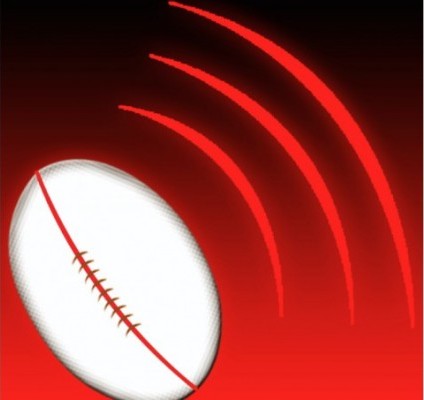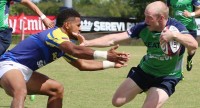Magleby Talks CRC, Elite City 7s
Magleby Talks CRC, Elite City 7s
USA National Development Director for 7s, Alex Magleby, has had some work to do scouting talent at both the CRC and then the Elite City 7s.
And he might be a little discouraged given that there wasn’t a real standout at the CRC, and the winning teams in the Elite City 7s were those that had the most experience, and were already identified. With the Elite MVP being Mike Palefau, the message seems to be that the youngsters still need time. With Seamus Kelly leading the way for Cal in the CRC, once again it seems the top players are already in the pipeline.
Magleby doesn’t look at it that way.
“I think this is the start of something,” said Magleby. “What we want is for players to be able to execute skills under pressure. If you look at players on a lot of teams, they touch the ball maybe five times in a training session, and never under pressure. Then they touch the ball twice in a game under pressure, and fail to execute. That kind of approach isn’t not helping us get better. What we want is for a player to have 120 passes in a week under pressure.”
Magleby and Billy Millard, National High Performance Pathway Manager, are working on a technical manual to help standardize some terminology and approaches at the national team level. But that’s just a small part of it. There needs to be tougher competition at the highest level. Magleby, who led Dartmouth to two CRC titles, said he felt the CRC was more competitive than in years past, and one of the reasons one player didn’t stand head and shoulders above the rest was because the level of play, overall, was better.
He also added that there were plenty of Small College teams and players who were good, too.
As for the Elite City 7s, one of the controversies to come out of that competition was they fact that players who were in training at the Olympic Training Center participated. Some coaches and players from other teams were upset about that, but Magleby goes back to the competition thing.
“We wanted the top 144 players available,” he said. “If you want to say a player should be considered for the national team, he should be playing against players at that level.”
As it was, the winning team was one that plays together a lot (Seattle), with three players who have significant international 7s experience (Palefau, Andrew Durutalo, and Kevin Swiryn), and two others who have played 7s for the USA.
The 2nd-place team was all USA OTC players, but only about half had been capped in 7s, and none could be considered a regular player - yet.
Third-place Denver was a bunch of experienced guys who know how to play together, augmented by some younger talent. while 4th-place Philadelphia might well have been the team that followed the spirit of the competition the most, by exposing young players to the rigors of top competition.
The same could be said of 5th-place Boston.
So USA Rugby is making no apologies for putting OTC players in the Elite City 7s, but the fact that San Diego finished 2nd is perhaps an indication that there’s more to do in preparing up-and-comers for international 7s.
“We have seen guys with potential,” said Magleby. “We get better athletes and better structure, both at the CRC, where there’s more parity, and in the Elite City 7s, and if we identify areas of the game where we can be successful, or can dominate, we can be better in the long-term.”













